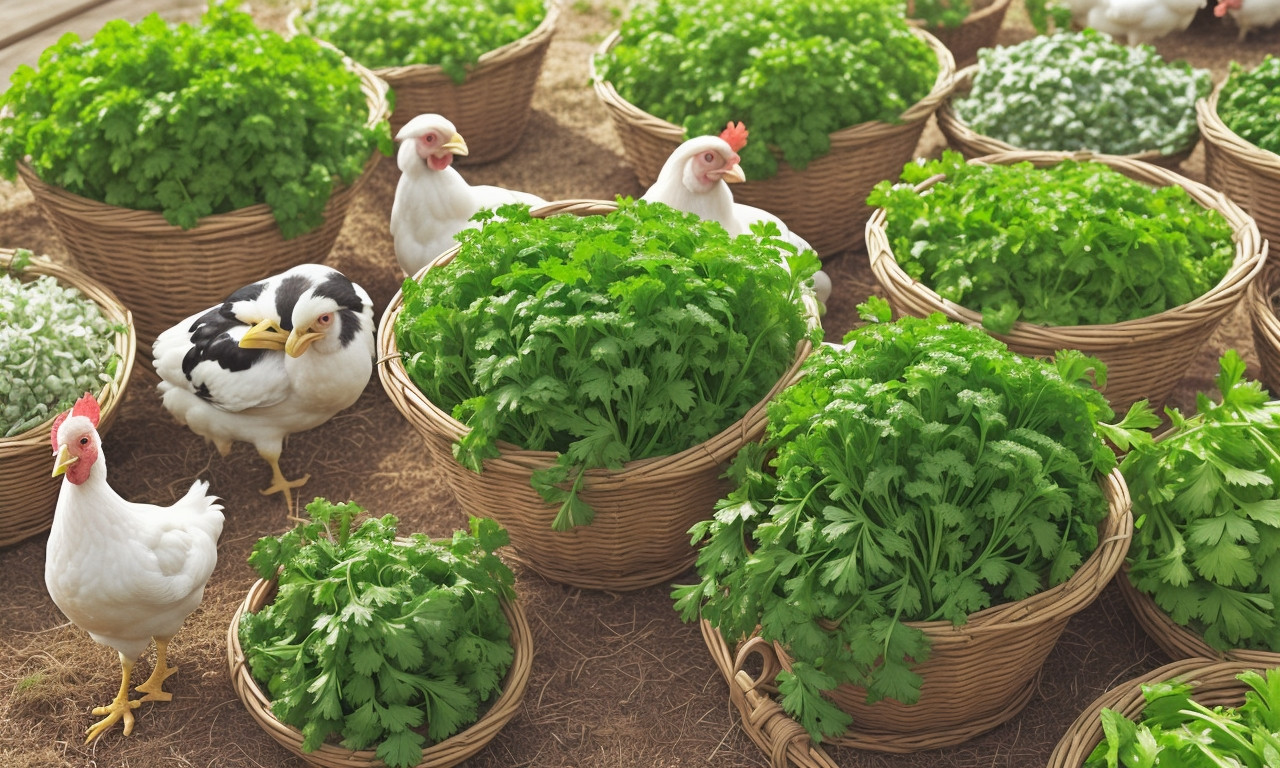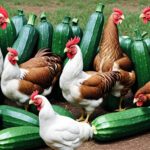As a key staple in our humanoid herb gardens, parsley is renowned for its vibrant green leaves and its enriching nutritional contribution to our meals. But when we consider the diverse diet of our feathered friends in the backyard, the question arises: Can chickens eat parsley? This verdant herb is more than just a garnish on the plate; for chickens, parsley could be a nutritious supplement, but it’s crucial to understand the dos and don’ts of feeding this leafy green to your flock.
In this in-depth article, we will delve into the world of poultry nutrition, specifically examining the role of parsley as a potential component of a chicken’s diet. With backyard chicken keeping becoming a beloved pastime and a healthy lifestyle choice, understanding what herbs can safely enhance their diet is vital. Let’s peck away at the facts and discover how parsley fits into a chicken’s nutritional repertoire.
What Is Parsley and Why Consider It for Chickens?
Parsley (Petroselinum crispum) is more than just a decorative leaf; it’s a culinary herb with a rich history and numerous health benefits. Before we venture into discussing its compatibility with chickens, let’s take a brief overview of this herb’s profile.
The Nutritional Composition of Parsley
Parsley is packed with a variety of nutrients that can offer potential health benefits:
- Vitamins such as vitamin K, vitamin C, and vitamin A
- Essential minerals like iron, calcium, and magnesium
- A host of antioxidants, including flavonoids and carotenoids
These nutrients make parsley an attractive addition to any diet, including that of our clucking companions.
The Digestive System of Chickens
To comprehend whether chickens can consume parsley safely, understanding their digestive system is imperative.
- Chickens have a gizzard, an organ that grinds up food with the help of grit.
- They require a mixture of grains, proteins, and greens for a balanced diet.
- Unlike humans, chickens are not prone to have gastric ulcers from certain spices or herbs due to their unique digestive process.
Therefore, adding some herbs, like parsley, may be beneficial for can chickens eat zucchini, provided it’s done with care.
Can Chickens Eat Parsley Safely?
The answer to this question is yes, chickens can safely eat parsley in moderation. However, due caution should be taken as excessive consumption may lead to health issues due to its high vitamin K content, which affects blood clotting.
The Benefits of Parsley for Chickens
When fed in moderation, parsley can be a healthy snack for your poultry due to its:
- Vitamin-rich profile: Beneficial for the immune system and overall health.
- Minerals: Important for bone development and eggshell quality.
- Presence of antioxidants: Can improve the health and vibrancy of chickens.
Potential Risks of Overfeeding Parsley
Even though parsley is safe for chickens in controlled amounts, overfeeding can lead to complications such as:
- Interference with blood clotting: Due to the vitamin K present.
- Nutritional imbalance: If parsley overpowers other essential dietary components.
- Digestive problems: In large quantities, parsley can be difficult for chickens to digest.
How To Introduce Parsley Into Your Chicken’s Diet
Integrating parsley into a chicken’s diet requires a thoughtful approach. Here are some guidelines to ensure your chickens benefit from this herb.
Starting with Small Quantities
Begin by offering a small amount of parsley to your chickens and monitor their reaction. Notice any changes in their behavior or health and adjust accordingly.
Balancing Parsley with Other Foods
While parsley can be a wholesome snack, it should never replace a chicken’s primary diet. Ensure they have access to their usual feed and a diversity of foods.
Organic and Fresh Is Best
Opt for organic parsley to avoid exposing your flock to pesticides, and provide it fresh rather than dried for the best nutritional value.
Creating a Chicken-Friendly Herb Garden
To easily provide parsley and other safe herbs to your chickens, consider creating a dedicated garden. An herb garden can be a form of "chicken enrichment" and a source of fresh nutrients:
- Plant a variety of herbs: Including parsley, mint, and oregano.
- Ensure easy access: Allow chickens to peck at herbs as they please.
- Keep it pesticide-free: For the health and safety of your chickens.
The Comprehensive List of Safe Herbs for Chickens
While parsley is a fantastic start, it’s not the only herb that chickens can enjoy. Below is a list of other safe herbs:
- Mint: Known for its digestive benefits.
- Oregano: With natural antibiotic properties.
- Thyme: Another herb with reported health-boosting effects.
Chickens can benefit from a variety of herbs, each offering unique nutrients and potential health perks.
Health and Happiness: The Impact of Herbs on Chicken Livelihood
Feeding parsley and other herbs to chickens not only serves as a healthy snack but can also play a role in their emotional wellbeing.
- Enrichment: Herbs can stimulate their senses and reduce stress.
- Natural foraging behavior: Encourages chickens to peck and search for food, which is a healthy activity.
- Improved flock dynamics: A more varied diet can lead to happier chickens and potentially less pecking order drama.
Parsley and Egg Production: Is There a Connection?
Some poultry keepers claim that herbs like parsley, with their high nutrient content, might have a positive impact on egg production and quality.
- Rich in calcium and vitamins: These nutrients are crucial for strong eggshells and healthy embryos.
- Could improve yolk color: Antioxidants may lead to richer, deeper colored yolks.
- However, these claims are largely anecdotal and should not be taken as scientific fact.
Maximizing Your Flock’s Health with Parsley: The Takeaway
Feeding parsley to your chickens is a wonderful way to supplement their diet with additional nutrients and provide variety in their daily pecking routine. To ensure the safe and beneficial inclusion of parsley:
- Moderation is key: Avoid overfeeding and prioritize a balanced diet.
- Mix it up: Offer a variety of safe herbs for a holistic health approach.
- Observe your flock: Watch for any adverse reactions and adjust feeding practices accordingly.
As with any dietary changes, it is recommended to consult with a veterinarian or a chicken nutrition expert if you have concerns about introducing new foods. By incorporating parsley mindfully, you’re set to boost your chickens’ health while keeping their taste buds clucking with delight.







